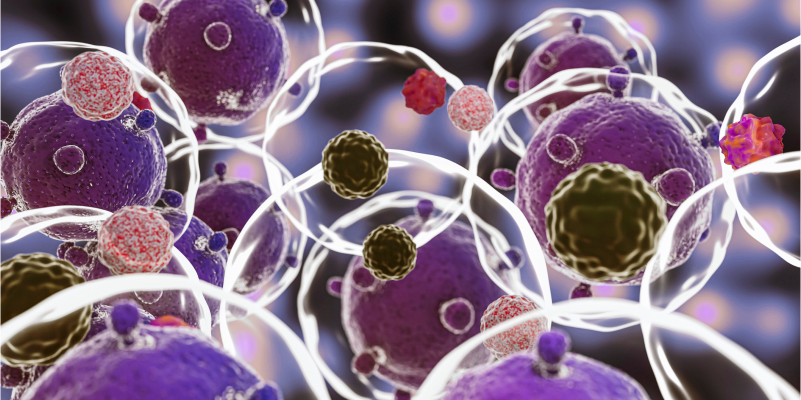
Cancer-related fatigue is a common and debilitating symptom experienced by individuals undergoing cancer treatment. In addition to its physical effects, cancer-related fatigue can also have a profound impact on cognitive function. This article will explore the relationship between cancer-related fatigue and cognitive impairment, delve into the underlying mechanisms, discuss the impact on patients’ quality of life, and explore potential interventions to address these cognitive symptoms in cancer patients.
Cancer-related fatigue and cognitive impairment often coexist, prompting researchers and healthcare professionals to investigate the connection between these two symptoms. Studies have consistently shown that cancer survivors who experience significant fatigue are also more likely to report cognitive symptoms, such as difficulties with memory, attention, and concentration. However, the exact mechanisms underlying the correlation between cancer-related fatigue and cognitive impairment are still not fully understood.



Several mechanisms have been proposed to explain the cognitive impairment experienced by cancer patients with fatigue. One hypothesis suggests that cancer-related fatigue may result from systemic inflammation, which can also affect the brain and contribute to cognitive dysfunction. Inflammatory processes triggered by cancer or cancer treatments may disrupt neural networks and reduce cognitive performance. Another potential mechanism is related to the disruption of the sleep-wake cycle caused by fatigue. Poor sleep quality and disturbances in sleep patterns have been associated with cognitive impairment in cancer patients. Disrupted sleep may hinder memory consolidation, attention, and cognitive processing speed, thereby contributing to the cognitive symptoms experienced by fatigued individuals. Psychological factors, such as depression and anxiety, which often coexist with cancer-related fatigue, can also play a role in cognitive impairments. These psychological symptoms may exacerbate fatigue and lead to cognitive difficulties due to their impact on mood, motivation, and brain function. Additionally, certain cancer treatments, such as chemotherapy and radiation therapy, may directly affect the brain and result in cognitive difficulties.
The impact of cognitive impairment on the quality of life of cancer patients cannot be underestimated. Difficulties with memory, attention, and information processing can interfere with daily activities, work, and social interactions. Patients may struggle to remember important information, experience challenges in multitasking, and have difficulty concentrating on complex tasks. These cognitive symptoms can lead to frustration, decreased self-esteem, and reduced independence, significantly affecting patients’ overall well-being and functioning.
Cognitive impairment can also impact cancer patients’ ability to make informed decisions about their treatment and follow complex medical instructions. It may hinder their ability to participate in discussions with healthcare providers and understand the potential risks and benefits of different treatment options, leading to increased anxiety and uncertainty.
Furthermore, cognitive impairment can strain personal relationships as patients may struggle to effectively communicate their needs and remember important details. Patients may withdraw from social activities due to fear of embarrassment or frustration associated with their cognitive symptoms, leading to isolation and decreased quality of life.

Addressing cognitive deficiency in cancer patients experiencing fatigue requires a complex approach that takes into account the underlying causes and individual patient needs. Although no definitive treatment for cancer-related cognitive impairment currently exists, several interventions have shown promise in managing the cognitive symptoms associated with fatigue.
Cognitive rehabilitation programs aim to improve cognitive function, including memory, attention, and information processing skills. These programs often involve structured exercises and strategies designed to target specific cognitive difficulties experienced by patients. Cognitive rehabilitation can be administered individually or in group settings, and various techniques, such as computer-based exercises, cognitive training, and compensatory strategies, may be utilized. Research has shown that cognitive rehabilitation can lead to improvements in cognitive function and overall quality of life in cancer patients.

Physical exercise has been found to have cognitive benefits in various populations, including cancer patients. Engaging in regular exercise can enhance cognitive function, improve mood, and reduce fatigue. Studies have shown that exercise can lead to improvements in attention, memory, and executive function in cancer survivors. Incorporating aerobic exercises, such as walking or swimming, as well as strength training, yoga, or tai chi, can promote neuroplasticity and support cognitive function in cancer patients.
Addressing psychological factors, such as depression and anxiety, can also indirectly improve cognitive function. Psychological interventions, such as cognitive-behavioral therapy (CBT), can help patients develop coping strategies and reduce psychological distress. By managing mood and psychological symptoms, patients may experience improvements in cognitive function and overall well-being.
Improving sleep quality and addressing sleep disturbances can significantly mitigate cognitive impairment in cancer patients with fatigue. Integrating healthy sleep habits, such as maintaining a consistent sleep schedule, creating a sleep-friendly environment, and engaging in relaxation techniques before bedtime, can help promote better sleep quality and alleviate cognitive symptoms. In some cases, healthcare providers may identify the need for additional interventions, such as sleep medications or referral to sleep specialists, to address severe sleep disturbances.

Education and support play a crucial role in addressing cognitive symptoms in cancer patients. Providing patients with information about common cognitive impairments associated with cancer-related fatigue can help alleviate anxiety and frustration. Support groups or counseling sessions can provide a safe space for patients to share their experiences, learn coping strategies from others in similar situations, and receive emotional support. By normalizing cognitive symptoms and providing practical tools for managing them, patients can feel empowered to navigate their cognitive challenges more effectively.
Cancer-related fatigue and cognitive impairment often coexist and significantly impact the quality of life of cancer patients. Understanding the link between these symptoms and exploring potential interventions is crucial for addressing cognitive impairments effectively. Various interventions, including cognitive rehabilitation, physical exercise, psychological therapies, optimizing sleep, and providing education and support, can significantly alleviate cognitive symptoms and improve overall well-being in cancer patients with fatigue. By implementing a multidimensional approach tailored to individual patient needs, healthcare providers can support patients in managing their cognitive symptoms and enhance their ability to cope with the demands of cancer treatment and daily life. Through comprehensive care and support, patients can experience improved cognitive function, reduced distress, and a higher quality of life throughout their cancer journey.

Dr. Yakov Freed

Dr. Yakov Freed